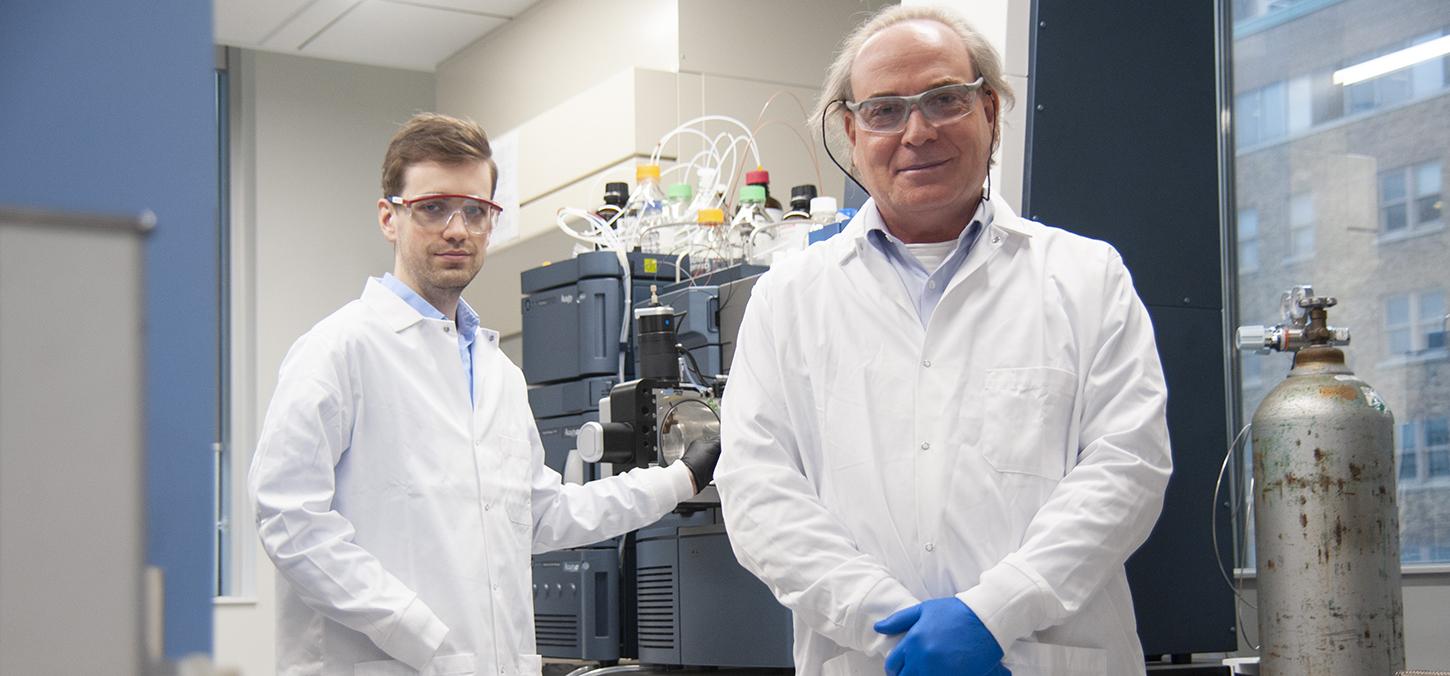
Dentistry researcher among those awarded a Connaught Innovation Award for promising technology development
By Perry King, with additional files by Peter Boisseau and Erin Vollick
An app to help people who have issues with their memory. Implantable electrodes to help relieve pain. A waste-reducing tool for the oilsands.
These three projects are among 12 at the University of Toronto that will share almost $600,000 in funding through the Connaught Innovation Award program, which recognizes and supports promising technologies that have strong socio-economic or commercial potential.
Faculty of Dentistry associate professor Yoav Finer, who holds the George Zarb/Nobel Bio Care Chair in Prosthodontics, was among the winners for his work developing a new biomaterial to prolong the lifespan of tooth-coloured fillings. The material releases antimicrobial materials under the filling slowly and over an infinitely extended period of time. The research is being bundled through a new startup venture, Mesosil, headed up by postdoctoral fellow Cameron Stewart. Stewart was jointly supervised on this research with Finer and professor Ben Hatton (Department of Materials Science & Engineering). (Read more about the project, and Mesosil, here)
“We extend our congratulations to all the winners of this year’s Connaught Innovation Award,” said Vivek Goel, U of T vice-president of research and innovation. “They represent a tremendous range of research and innovation work with considerable potential to have a great impact on society.
“The Connaught’s rich tradition of supporting unique, innovative projects continues to this day,” Goel added. “Each of the winners are well on their way to making unique contributions to a wide range of local and global research issues.”
The internal award is made possible by the Connaught Fund, the largest internal university research funding program in Canada. Since its creation in 1972 from the sale of the Connaught Laboratories, which produced vaccines, antitoxins and insulin after its discovery by Frederick Banting and Charles Best, the Connaught Fund has awarded more than $160 million to U of T researchers.
Of that, more than $6 million has been given in eight competitions for the Connaught Innovation Award program.
The 12 Connaught Innovation Award winners are:
- Morgan Barense, associate professor in the department of psychology, for “the Hippocamera, a neuroscience-guided digital memory augmentation device”
- Mark Chignell, professor in the department of mechanical and industrial engineering, for “centivizers for managing behaviour in dementia using rewarded activities"”
- Yoav Finer, associate professor in the Faculty of Dentistry, for “dental materials for ultra-long-term caries prevention and restoration-tooth bond preservation”
- Roman Genov, professor in the department of electrical and computer engineering, for the “clinical validation of an intelligent, implantable neurostimulator for treating drug-resistant epilepsy”
- Andreas Mandelis, professor in the department of mechanical and industrial engineering, for “wavelength-modulated intravascular differential photoacoustic radar imaging (IV-DPARI) for minimally invasive human coronary lipid-rich plaque arterial wall (intima) imaging diagnosis”
- Alison McGuigan, associate professor in the department of chemical engineering and applied chemistry, for “an in-vitro human muscle cell potency assay for cell product QC and muscle endogenous repair drug identification”
- Trevor Moraes, associate professor in the department of biochemistry, for the “development of large scale surface lipoprotein antigen production”
- Vladimiros Papangelakis, professor in the department of chemical engineering and applied chemistry, for the “forward osmosis-freeze concentration (FO-FC) hybrid process to recover clean water from industrial effluents”
- Igor Stagljar, professor in the department of biochemistry, for developing “split intein-mediated protein ligation (SIMPL) – a novel high throughput technique for detecting protein-protein interactions”
- Paul Yoo, associate professor in the Institute of Biomaterials and Biomedical Engineering, for the “evaluation of novel polymer coatings aimed at improving the performance of chronically implanted electrodes”
- Ding Yuan, associate professor in the department of electrical and computer engineering, for “non-intrusive software failure resolution”
- Andrei Yudin, professor in the department of chemistry, for “an enabling building block for chemical synthesis of value-added molecules"
Photo credit: Jeff Comber, IITS